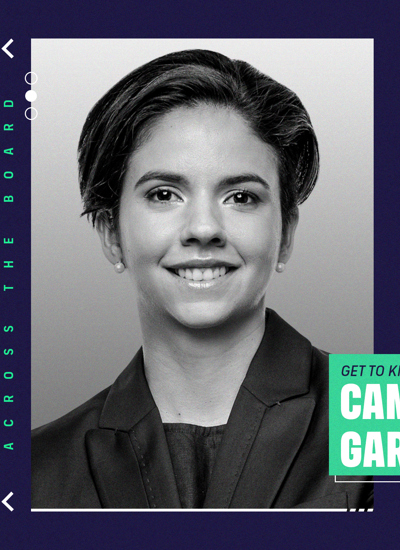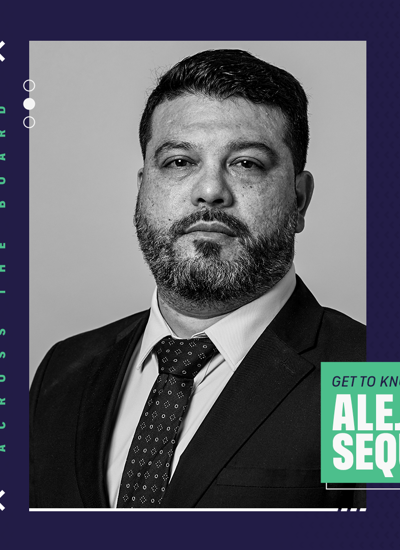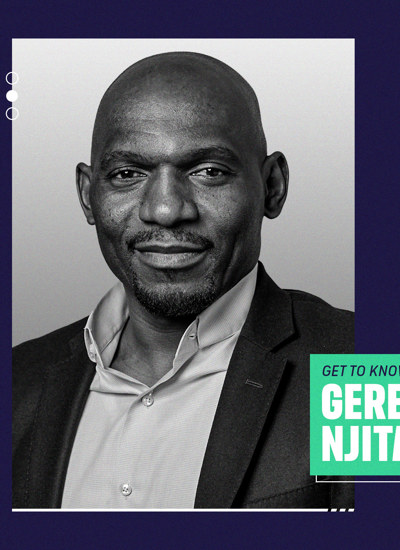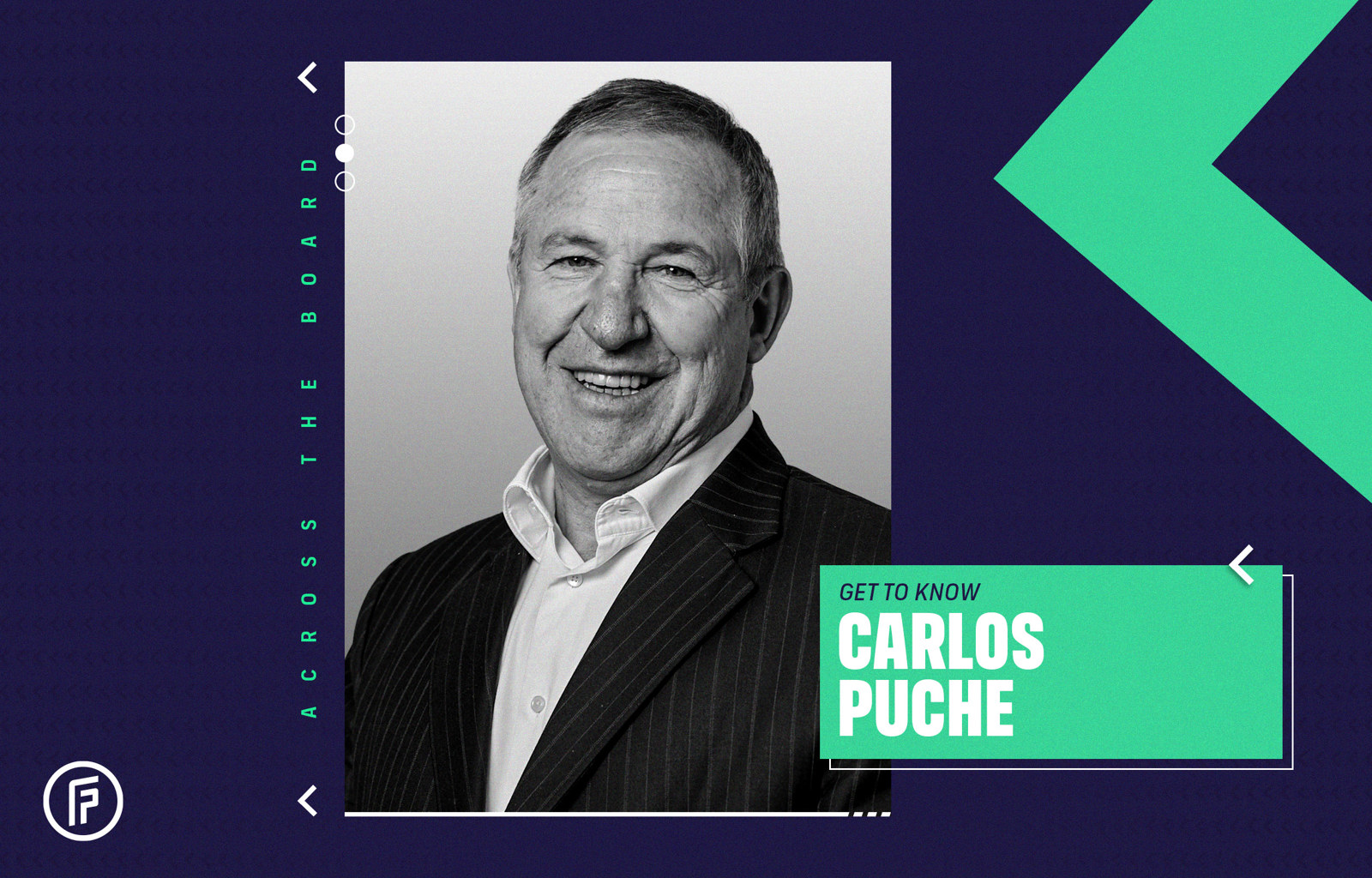
FIFPRO introduced an 18-person board, the most diverse in the global player union’s 56-year history, during its General Assembly in November 2021.
Across the Board aims to profile all 18 board members. Next: Colombia's Carlos Gonzalez Puche.
Carlos Gonzalez Puche
- As a player, used law degree to stand up for team-mates
- Co-founded national player association ACOLFUTPRO
- Pushing to improve opportunities for South American players
How did you become a leader of players?
Carlos Gonzalez Puche: When I was 22, I made my debut for Millonarios, which was then the biggest club in Colombia. I always knew football was temporary so I had studied law at university. In 1982, players were not paid and I used my legal knowledge to help my team-mates. The club marked me out as an activist. For the whole of 1983, I was barred from playing. In 1984 I was loaned to America de Cali. I played in the first team and I scored a goal in the final match that helped us to qualify for the Copa Libertadores (South America’s top club competition). After a stint at Cucuta Deportivo, I went back to Millonarios for pre-season and the manager said they had transferred me to a provincial team. I said never again would I be transferred against my wishes. I went to the locker room, gathered my possessions, went home and did not come back. I was 28 and I did not set foot on a football pitch again.
I completed my law degree with a thesis, which was on the unconstitutionality of the employment regulations in professional football, and I qualified as a lawyer. I set up my own law firm and held several roles including managing director of the national federation of rice producers. In 1997, I went to court and, on the basis of the Bosman ruling, I contested the unconstitutionality of Colombia’s sports law. The judge’s ruling in the case recognised the rights of footballers as workers, and the right to freedom of movement when their contracts expired. The next year, I created a legal precedent to allow four players to leave Deportivo Independiente Medellin.

How did you start ACOLFUTPRO?
In 2003, Luis Garcia came to me on crutches. He had a serious knee injury and did not have any medical insurance because his club, Santa Fe, had not paid his social security. He was sent by four other national team players: Ivan Cordoba (then at Inter Milan), Mario Yepes (Nantes), Juan Pablo Angel (Aston Villa) and Oscar Cordoba (Besiktas). These four players wanted to start a union and asked Luis to find a lawyer who had been a player. All four of them had had stints in Argentina before moving to clubs in Europe. They were familiar with player associations and wanted to help players in Colombia. We met at the national team camp in November 2003 and by March had agreed to create ACOLFUTPRO. (Today, Garcia is General Secretary and Gonzalez Puche is Executive Director).
How have the last 18 years been for your association?
It’s been a very, very difficult journey – against the wind and the tide. The Colombian football federation do not want players to have a voice: they don’t want to open the door to collective bargaining. But we have still been able to operate using the constitution and the law. In 2011, we helped argue for new legislation that says if clubs don’t pay salaries within 60 days they lose their license and cannot play in matches. Today, all players – both men and women - are up to date with salaries and we have more than 1,000 members.
We have been able to provide members with life insurance and education grants. For those without a club, we put on training camps throughout the year in Cali, Medellin and Barranquilla. During the pandemic, we gave out food parcels to players who were not paid. We provide free legal support for players at employment tribunal cases.
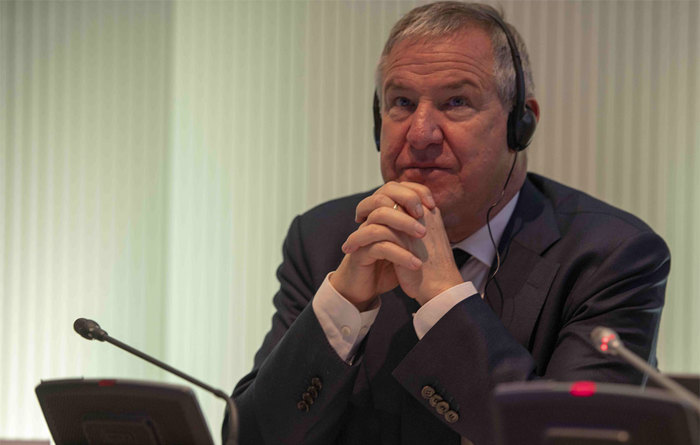
What is your objective as one of the South American representatives on FIFPRO’s board?
My experience in a country where there are no federation agreements with the player association, and where we have had to go to court, have allowed me to help colleagues when they need to stand up and fight against a system failing players. In South America, we are pushing for CONMEBOL to introduce a rule that no club in continental competitions can have salary arrears. This is something that will really help players in Bolivia, Paraguay and Venezuela. We have a campaign with the Organization of Ibero-American States called ‘Return to Study’ that is promoted at all Copa Libertadores and Copa Sudamericana matches. We have also secured 500 more grants awarded by CONMEBOL for players in the region to study. There is still much to do for players in South America but we are making important progress.
